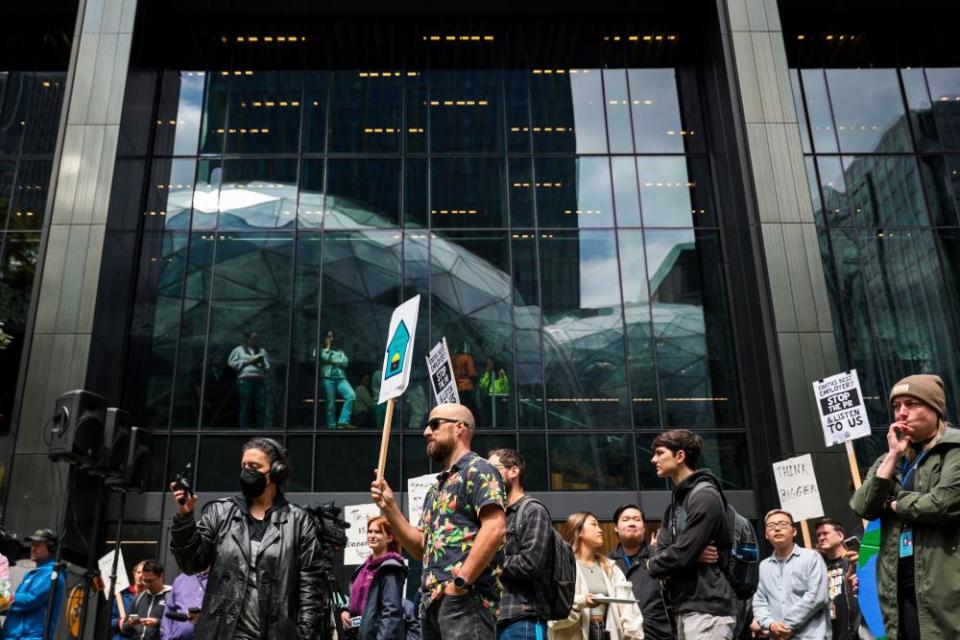Amazon starting to track and penalize workers who work from home too much

Amazon workers in the US are being tracked and penalized for not spending sufficient time in the company’s offices, an email sent to employees this week revealed, as tech companies push back against work-from-home practices that flourished during the pandemic.
Some staff members were alerted on Wednesday they were “not currently meeting our expectation of joining your colleagues in the office at least three days a week”, according to emails shared with the Financial Times. The emails were also discussed on the anonymous corporate message board platform Blind.
Related: How can you tell remote work is over? Zoom has ordered employees back to the office | Arwa Mahdawi
The email was intended to be sent to workers who have come into the office fewer than three days a week for five or more of the past eight weeks, according to a follow-up message sent to employees that Amazon shared with the Guardian. Some employees reported receiving the email by mistake and were encouraged to clarify their attendance with human resources.
Amazon is the latest employer taking measures to encourage workers to return to the office. In March, Apple began threatening punitive action against employees who did not return to the office part-time, and shortly after taking over as CEO of Twitter, Elon Musk began to require employees to return full-time.
The pandemic sent a large portion of the workforce home, including many tech workers. As of May 2022, 48% of tech workers said they were working fully remotely, up from 22% before the onset of the pandemic, according to a study from Morning Consult. It found that the majority of tech workers – 85% – were now working either hybrid or fully remote.
The trend has marked a major shift from the heyday of Silicon Valley, during which tech giants like Google, Meta and Apple spent billions to build massive campuses equipped with perks like catered food, laundry facilities and exercise centers to keep employees on the premises as much as possible.
Workers are not interested in returning to that lifestyle, studies have shown, with the Morning Consult report finding that three in five tech workers said they were not interested in returning to the office full-time.
Companies that have enacted such policies have faced backlash, with Amazon workers staging a walkout in June to protest the return-to-work policies. The latest email from Amazon reportedly angered some employees: “Is this supposed to scare people?” one employee wrote on an internal chat shared with Insider.
Workers rights groups say pushing employees back to the office against their will stands only to strengthen the growing labor movement in the tech space.
“Across its business lines, Amazon imposes a rigid and punitive system of management in an attempt to control and silence workers,” said Ryan Gerety, director of the Athena Coalition, a progressive group that has previously campaigned against Amazon. “Amazon’s actions will only fuel the efforts of workers who continue organizing for a voice in the workplace.”
The push to return to work also comes as another Covid-19 surge spreads across the US, underscoring risks that motivated the shift to working from home initially. Hospitalizations due to Covid-19 are up 12.5% in the past week and deaths up 10%, according to data from the Centers for Disease Control and Prevention.

 Yahoo Finance
Yahoo Finance 